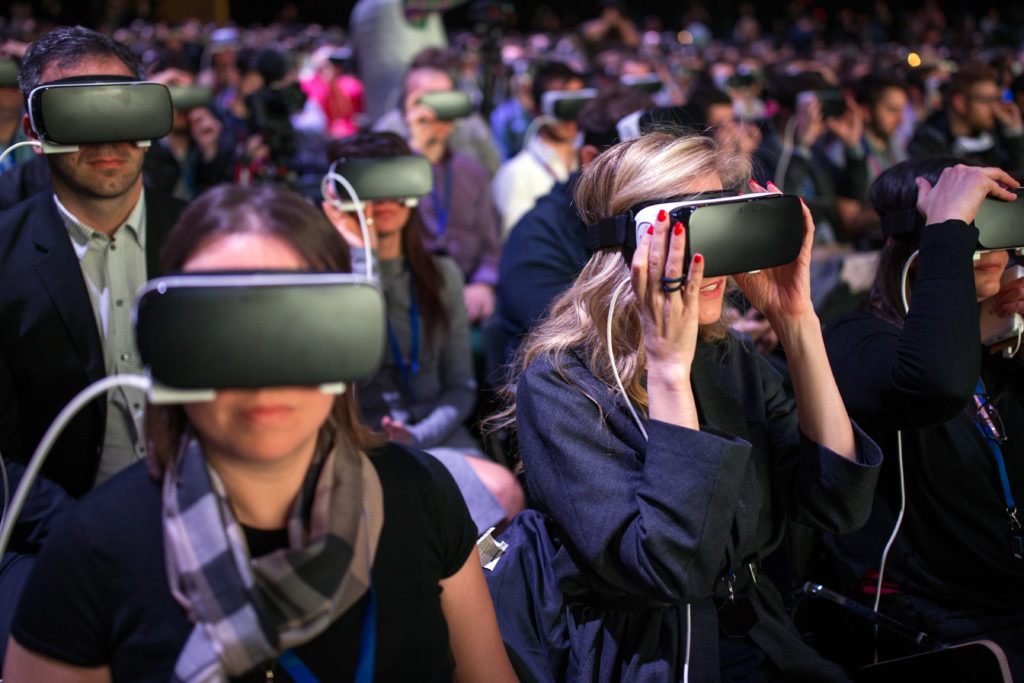Virtual events are here to stay. Almost eight months after the global pandemic, in-person events have been resoundingly replaced by virtual ones – and will occupy a permanent role in future marketing campaigns. A strategic virtual event strategy driven by marketing automation is a must for companies looking to expand and sustain interaction with audiences.
Several big conferences, networking events, and workshops have been or will be canceled at this point in the pandemic. Without a definite end in sight, social distancing continues to cause substantial sales losses for businesses that rely on physical events to engage the public. How can advertisers stop bleeding and take it back?
Going back to organizing online webinars, Q&As, fireside chats, focus groups, and beyond is a step in the right direction.

While the above takes time and effort to create, the brand’s commitment to these types of events is well worth its weight in gold when it comes to increasing your market, delivering unforgettable customer experience, and engaging your offering.
Savvy marketers have understood the importance of webinars and virtual events before, but this value has never been so widely accepted.
In reality, according to GoToWebinar’s Big Book of Webinar Stats, B2B companies are generating webinars, and more than 70% of customers have used them to make buying decisions in the last 12 months.
Given the challenges that have been thrown at the marketing industry this year, people are still excited about events. Brands need to crack the code on providing educational opportunities for prospects and current customers to learn from a safe distance about their solutions.
At this point, it is evident that all marketers need to accept virtual events as part of any proactive marketing strategy. Don’t know where to get started? Lean on the power of marketing automation to create events, promote the right audience, and monitor the interaction.
Create events for your primary audiences and segments
As a modern marketer, you’re no stranger to making data-driven choices to drive successful campaigns. You’re not expected to schedule the online events differently.
Leverage the data you gather on a daily basis through your marketing automation platform to educate your plan and create the ideal event for the right audience.
Start brainstorming by going to the source—your opportunities and customers.
- What posts on your social media have the most commitment?
- Have you got a record number of downloads from your last ebook?
The amount of data you obtain on your content speaks volumes. Prospect pain points, hot topics, and consumer questions are perfect springboards for high event content.

Now that you understand the subjects that your audience cares about, it’s time to think about your event’s right format. Lead generation is always significant, but so are current customers engaged, and these two audiences respond to different formats.
Prospects need a more general summary of your approach, whereas current customers might be underutilizing a particular function that you know will bring more value to them. It would be best if you always tailored virtual events to the consumer groups depending on where they are on the customer journey.
Lead generation events tend to be one-to-many, while consumer events can and should) be far more intimate.
To eliminate the burden from prospects who may not be as comfortable speaking up or participating in a completely interactive networking event, consider providing a webinar that does not require them to view their video feeds.
This will allow them to concentrate on absorbing the knowledge they need from your team without your brand being sold out.
Loyal customers who know your inside-out offer will only respond to intermediate content that deepens their established awareness.
For customers, explore moderated virtual user groups or advisory meetings that deepen your skills and allow a dialog to show customers how they can continue to expand.
In today’s market, concentrate more on educating clients rather than persuading them, particularly when you’ve already won their loyalty.
If you’re worried about organizing a whole series without a virtual event experience, it’s okay to take it easy. Until revealing events to the masses, just make an event for your top customers.
Provide them with a coupon code in return for attending the webinar and posting their comments and queries.
Your greatest evangelists will provide an insightful insight into your future plan, and this advance peek at your programming provides a touchpoint to show how much you appreciate their feedback.
Track engagement with a combined stack
In order to effectively execute and scale online events, you need a platform that can help you efficiently build, quantify, and streamline the specific funnel of these events.
Top-of-the-market platforms come with webcast integrations that allow you to design, execute, and measure the performance of your virtual events all under one roof.
By using a marketing automation tool that monitors every event campaign in real-time, you can refine your planning and promotional activities and better participate in sessions in which you invest.
The end-to-end event management solution should suit your online marketing background seamlessly and enable you to perform a multitude of functions. This includes organizing and designing the meetings, setting up a timetable, and creating promotional, confirmation, and follow-up emails.
When you have your promotional content squared off, a marketing automation platform will assist your webinar execution by scheduling notifications, monitoring responses, producing reports, and keeping your program running smoothly.
If you intend to promote your event across multiple channels (and you should do so, you can create trackable links for each channel.
Views and submissions from each of these traffic channels can then be tracked and calculated, giving you useful insights into what your viewers are better at responding to and where to commit your resources to achieve key objectives.
Long-term value guiding post-events
Most of the appeal of virtual events comes after the completion of the event, depending on how strategically you can integrate it into your ongoing marketing strategies.
The archiving and repurposing of online event material on your website helps you to derive more value from your virtual events, draw new keyword searches, and integrate tantalizing content into your potential marketing and marketing strategies.
Not only will archiving content help lead generation and offer prospects more opportunities to explore your solution, but it will also add resources to the catalog that you have available to loyal customers.
Providing ongoing opportunities for education and collaboration is crucial to helping current customers continue to develop their businesses and to gain full value from their solutions. This, in essence, means that you remain brand evangelists.
In addition, audiences are becoming more diverse as to how they want to consume content. After reviewing the audience groups, you can find that some industry professionals prefer to download ebooks, while others may prefer to watch a 30-minute webinar recording.
In reality, a recent study by Zenith found that an average person will spend 100 minutes per day watching online video in 2021, up from 84 minutes this year. Webinars are designed to be digestible and entertaining, and by providing content that your audience loves watching, you’re delivering a better customer experience.
After hosting a stellar online event, think about what other audience segments outside the participants may be interested in obtaining it as a recorded version. Perhaps you really dove deep into a particular product feature and realized that a segment of prospects might profit from the subject.
You can use the marketing automation tool to set up a promotional campaign promising to record gated content, persuading consumers to provide additional contact information to access it.
Using past content to drum up enthusiasm for the future optimizes your efforts and sets off a continuous period of interaction.
You can only access customers in the room in the world of physical events. On the other hand, online events let prospects and customers educate themselves in a non-pressure setting and create a rich chain of touchpoint opportunities for you to help them develop.
The more you meet your clients, the more relaxed they are, the more content they die to get their hands on, the more involved your audience will become.
Conclusion
Virtual events are our current standard, and they’re not going anywhere, even after the pandemic subsides. Marketers need to accept this in order to offer new customer service.
Tap the data to your audience section and set the right topics and formats for your virtual events.
A multi-channel automation platform can help successfully marketing your online events, no matter where the goals express interest.
To optimize interaction with online events, use them as long-term content tools to help your audiences. This will show that your brand is a thought leader and a trusted source, even though the attendees skipped your event.


Pingback:How To Make Money With Affiliate Marketing? - TopTut.com
Pingback:Hottest Affiliate Marketing Trends For Q4 2020 - TopTut.com
Pingback:How The Landscape Of Digital Marketing Will Change In 2021? - TopTut.com